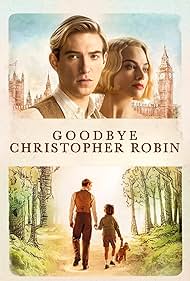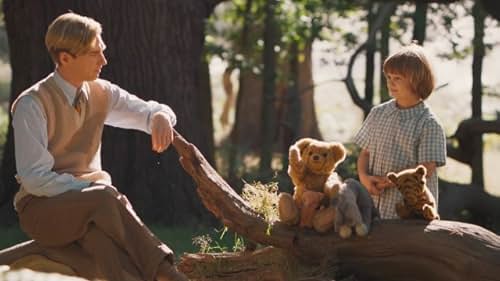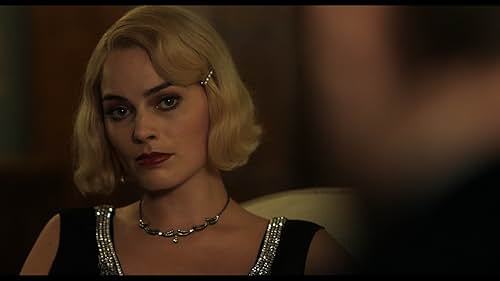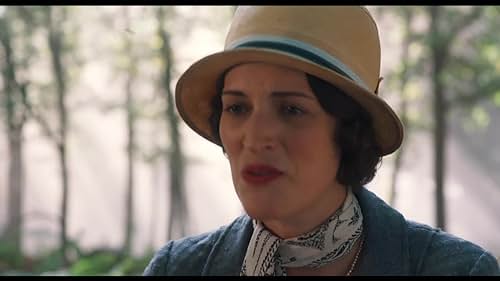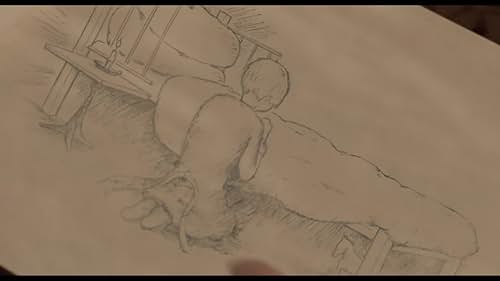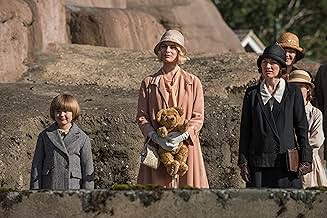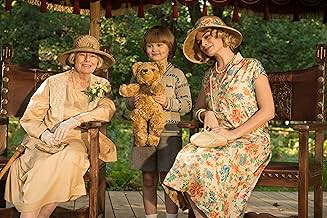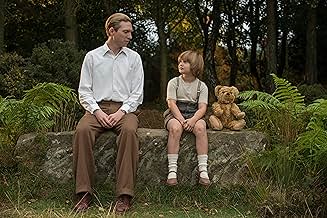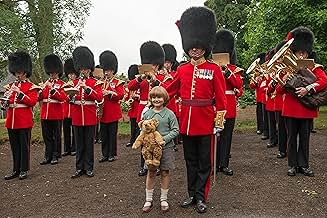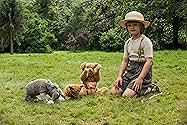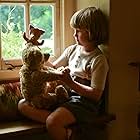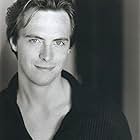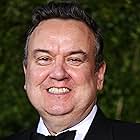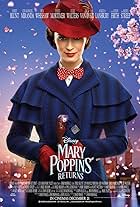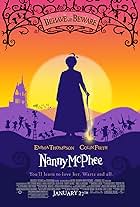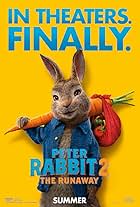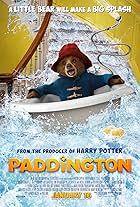The relationship between writer AA Milne and his son, Christopher Robin, and how this became the inspiration for Winnie the Pooh.The relationship between writer AA Milne and his son, Christopher Robin, and how this became the inspiration for Winnie the Pooh.The relationship between writer AA Milne and his son, Christopher Robin, and how this became the inspiration for Winnie the Pooh.
- Awards
- 2 wins & 3 nominations
- Director
- Writers
- All cast & crew
- Production, box office & more at IMDbPro
Storyline
Did you know
- TriviaThe film's depiction of C.R. Milne's relationship with his parents is relatively accurate. The actual C.R. never forgave his father for exploiting him (perhaps inadvertently) to sell books. Instead, he learned to accept what had happened and lived with it until he died in 1996. His relationship with his mother was worse; she disapproved of C.R. marrying his cousin. After A.A. Milne died in 1956, C.R. had almost no contact with his mother until she died fifteen years later. C.R.'s only child, his daughter Claire, was born with cerebral palsy. She died in 2012 at age 56.
- GoofsWhen the Guards band are playing, several are wearing modern day medals (Iraq, Afghanistan etc.). The close up of the cymbal player shows the Queen's Golden and Diamond Jubilee Medal which weren't awarded till 2002 and 2012, alongside a LSGC with Queen Elizabeth II on it.
- Quotes
Daphne Milne: You know what writing a book against war is like? It's like writing a book against Wednesdays. Wednesdays... are a fact of life, and if you don't like them, you could just stay in bed, but you can't stop them because Wednesdays are coming and if today isn't actually a Wednesday it soon will be.
- ConnectionsFeatured in Box Office: Episode dated 28 September 2017 (2017)
- Soundtracks2 Waltzes, Op. 54: Waltz No. 1: Moderato in A Major
Written by Antonín Dvorák
Performed by Vlach Quartet Prague
Courtesy of Naxos Rights US Inc.
Featured review
While not entirely perfect, this film is one that I will definitely watch again.
It had strange resonances for me personally, as my grandmother was a famous and celebrated author, who used me as inspiration for several of her children's books, and also as a subject for one of her academic books for adults.
During my early childhood, I spent many happy days playing imaginative games with my grandmother - always followed around by a photographer - and those games became the basis for her stories, with the photographs of me used to illustrate them. At the time I was quite happy about this, as it made me feel special, but I am now very well aware that I was being exploited.
Like Christopher Robin, I was never asked permission to be in her books, nor was I ever paid (although I inherited a modest amount of money when she died, so I suppose that could be considered payment of sorts).
Unlike Christopher Robin, I never resented the books I was in, and I never felt that my childhood memories had been stolen or commercialised. But my situation was never as drastic as his, and my grandmother's celebrity didn't even come close to that of A.A. Milne. However, there are enough parallels to have given me a few shivers while watching this movie.
Others have commented on its excellence, so I won't belabour that point, except to say that I agree. As a film it is beautifully crafted and (for me anyway) endlessly re-watchable.
I disagree with the negative comments about the stilted acting. If anything I felt they needed to be more stilted to be properly true to the period. I do agree that Margo Robbie's accent was uneven, but performance-wise I felt she did very well in what was perhaps the hardest role to perform convincingly.
As others have mentioned, the best performances came from the two boys playing Christopher Robin, although I also particularly liked Stephen Campbell Moore's understated warmth, and - for the first time in her career- I actually found myself liking Kelly Macdonald, an actress who has irritated me in every other film in which I've seen her. Here she exudes warmth and tenderness, and in a well-pitched and technically difficult performance manages to display undercurrents of disapproval and sympathy to the audience without over-egging the pudding.
The cinematography by Ben Smithard also bears special mention, bringing to the screen a subtle yet richly evocative atmosphere of nostalgia and childhood innocence without sacrificing realism or becoming overly stylised.
In fact, one of this film's many technical merits is the fine balance it achieves between all its various flavours and ingredients; each one subtle and understated, yet combining to create a rich and satisfying whole.
As an overall viewing experience it has much to recommend it, and very little about which to complain.
It had strange resonances for me personally, as my grandmother was a famous and celebrated author, who used me as inspiration for several of her children's books, and also as a subject for one of her academic books for adults.
During my early childhood, I spent many happy days playing imaginative games with my grandmother - always followed around by a photographer - and those games became the basis for her stories, with the photographs of me used to illustrate them. At the time I was quite happy about this, as it made me feel special, but I am now very well aware that I was being exploited.
Like Christopher Robin, I was never asked permission to be in her books, nor was I ever paid (although I inherited a modest amount of money when she died, so I suppose that could be considered payment of sorts).
Unlike Christopher Robin, I never resented the books I was in, and I never felt that my childhood memories had been stolen or commercialised. But my situation was never as drastic as his, and my grandmother's celebrity didn't even come close to that of A.A. Milne. However, there are enough parallels to have given me a few shivers while watching this movie.
Others have commented on its excellence, so I won't belabour that point, except to say that I agree. As a film it is beautifully crafted and (for me anyway) endlessly re-watchable.
I disagree with the negative comments about the stilted acting. If anything I felt they needed to be more stilted to be properly true to the period. I do agree that Margo Robbie's accent was uneven, but performance-wise I felt she did very well in what was perhaps the hardest role to perform convincingly.
As others have mentioned, the best performances came from the two boys playing Christopher Robin, although I also particularly liked Stephen Campbell Moore's understated warmth, and - for the first time in her career- I actually found myself liking Kelly Macdonald, an actress who has irritated me in every other film in which I've seen her. Here she exudes warmth and tenderness, and in a well-pitched and technically difficult performance manages to display undercurrents of disapproval and sympathy to the audience without over-egging the pudding.
The cinematography by Ben Smithard also bears special mention, bringing to the screen a subtle yet richly evocative atmosphere of nostalgia and childhood innocence without sacrificing realism or becoming overly stylised.
In fact, one of this film's many technical merits is the fine balance it achieves between all its various flavours and ingredients; each one subtle and understated, yet combining to create a rich and satisfying whole.
As an overall viewing experience it has much to recommend it, and very little about which to complain.
- kitellis-98121
- Jul 11, 2018
- Permalink
- How long is Goodbye Christopher Robin?Powered by Alexa
Details
- Release date
- Countries of origin
- Official sites
- Language
- Also known as
- Tạm Biệt Christopher Robin
- Filming locations
- Gills Lap, Ashdown Forest, East Sussex, England, UK(Forest Scenes)
- Production companies
- See more company credits at IMDbPro
Box office
- Gross US & Canada
- $1,735,251
- Opening weekend US & Canada
- $57,917
- Oct 15, 2017
- Gross worldwide
- $7,401,949
- Runtime1 hour 47 minutes
- Color
- Sound mix
- Aspect ratio
- 1.85 : 1
Contribute to this page
Suggest an edit or add missing content

